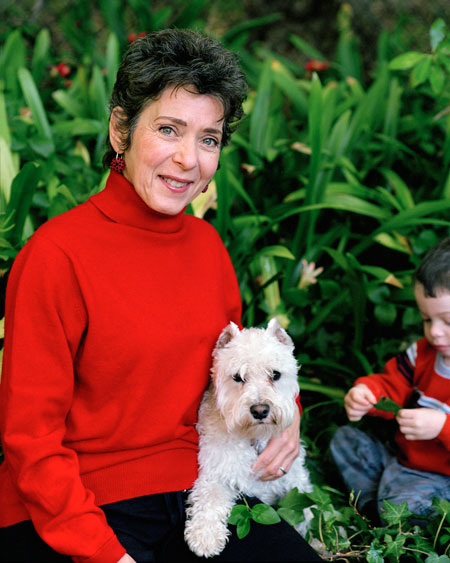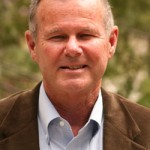
Rabbi Malka Drucker has deep ties to Idyllwild. But she has only recently returned to Idyllwild to live, having spent the last several decades in Santa Fe, New Mexico, where she founded the synagogue HaMakom, the Place for Passionate and Progressive Judaism.
Drucker has had a cabin in Idyllwild for more than 40 years. A prolific writer, the author of more than 20 books, Drucker taught at the University of Southern California at a time when USC ran the Idyllwild Arts (then ISOMATA) Summer Program. Drucker served as workshop director at ISOMATA from 1982 through 1984. In that capacity she created curriculum, supervised instructors and taught adults how to write for children. As a fit and dedicated hiker, she knows Idyllwild’s trails very well.
But she had not thought of returning to live in Idyllwild because, until recently, there had been no Jewish congregation here. So it seemed propitious when Har Shalom’s first rabbi, Jules King, moved on, that Drucker would return to lead the growing congregation.
Drucker’s professional résumé reads like a journey: a Bachelor of Arts in English from UCLA and a teaching credential from USC; and rabbinical training at Hebrew Union College in Jerusalem, the University of Judaism in Los Angeles, the Jewish Theological Seminary in New York City and the Academy for Jewish Religion, also in New York City.
Her 20 books, published by major houses, have been honored with prestigious awards, including a Southwest Pen Award for Non-Fiction in 2003, a 1993 New York Public Library Top 100 list, a 1983 Southern California Literature for Young People Award, a 1991 Bantam Publications Pick of the Lists Hungry Mind Award, and a 1978 Holiday House Sports Book of the Month selection for “Tom Seaver: Portrait of a Pitcher.” Drucker is a major baseball fan.
She has lectured widely throughout the United States: at the Jewish Museum in New York City, the Skirball Museum in Los Angeles, the Corcoran Gallery in Washington, D.C., Occidental College in Los Angeles and Wittenburg University in Springfield, Ohio, and many other venues.
But it is in conversation with Rabbi Malka, as she is known, that one experiences her passion, her conviction and her power. She teaches by asking questions, something that has historically been part of the relationship of rabbi to congregation in Judaism. “Why are we doing this?” asks Malka about the practice of her faith. “The answer is always going to be to love people and trust God, while knowing our own fallibility.”
She mentioned two apparently contradictory concepts that, for her, best sum up our place, as humans, in a world of faith and of religious practice: “For me, the world was created,” and, “I am but dust and ashes.” The lesson is, explained Malka, that all we have been given is given only so that we can serve and give to others in humility.
In becoming a rabbi, Drucker said she wanted a deeper, creative understanding of spirit that was not academic. “I needed that creative piece,” she said. When asked to clarify what she meant, she asked,” What is God’s primary function? To create with the ongoing animating force. And, if I’m created in God’s image, then it’s in my creativity that I come closest to God. That’s the love piece.”
Quoting the Kol Nidre, a declaration recital on the Yom Kippur, the Day of Atonement, Drucker said, “A rabbi has two tasks: to bring forth creativity in others and to reveal oneself [Kol Nidre 5771].”
Asked how she would approach her new congregation, Drucker said, “I need to sit and listen in this congregation. My first job is to create maximum connectivity with whatever one feels is God, and to explore the inchoate longing for that connection. This is what I hope to offer, this impeccability of practice, where we are all doing the very best that we can to show how much we love God. It’s not acceptable to just kind of do it.”
Drucker displays a formidable intellect and powerful spirit, while at the same time radiating graciousness and warmth. And always there is good-natured humor. She smiled when she explained how she would know when she was successful. “My job as your rabbi is to teach you everything I know so that I would be out of a job — to be of help in solidifying this community through love and kindness, and the practice of Judaism.”
At her ordination speech, in becoming a rabbi, Drucker said, “It may take a village to raise a child, but it took a city the size of Manhattan to make me a rabbi.”










